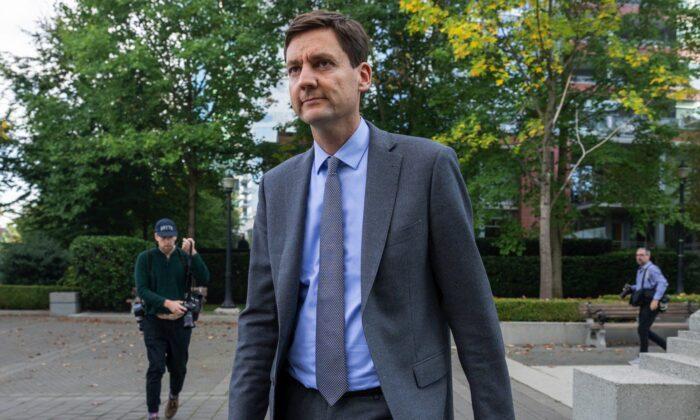I’ve just discovered a whole bunch of online posts and institutional releases insisting that it’s unlikely someone will die from second-hand fentanyl smoke and that such smoke isn’t really that big of a deal.
It’s incredible, really. First, that there are enough people being exposed to fentanyl smoke as they go about their lives that they’re now seeking information on it. Second, that those who want an increasingly lax approach to drug culture are trying to tell people that this is no biggie.
Well, try telling that to the British Columbia Nurses Union. They’re one of the most recent collective voices in B.C. to step forward and take issue with the province’s incredibly permissive approach to hard drug use.
The union complained that their members have been getting sick from fentanyl smoke in hospitals when patients use the deadly drug in front of them.
No one should have to work in such an environment. There’s little the nurses can do about it, though. That’s because the B.C. NDP government of Premier David Eby brought in a pilot program on January 2023 that allowed adults to carry 2.5 grams of hard drugs for personal use. The province received a Health Canada exemption under the Controlled Drugs and Substances Act, allowing for open drug use in some public spaces.
It’s because of this exemption that police couldn’t do anything about fentanyl use in a hospital, and nurses are just left having to deal with the problem. But that’s far from the only space where plumes of the toxic drug could wind up in someone’s face.
Vancouver Police Deputy Chief Fiona Wilson testified at a House of Commons health committee hearing on just how difficult the pilot makes it for police to deal with public disorder.
“In the wake of decriminalization, there are many of those locations where we have absolutely no authority to address that problematic drug use, because the person appears to be in possession of less than 2.5 grams,” Wilson said. “So, if you have someone who is with their family at the beach, and there’s a person next to them smoking crack cocaine, it’s not a police matter.”
What a wild statement. However, it looks like the B.C. government finally agrees—even they are now admitting this policy has consequences beyond what they’re willing to accept.
Last week, Premier Eby announced that he now wants to recriminalize open hard drug use in public spaces.
“Keeping people safe is our highest priority,” he said in a press release. “While we are caring and compassionate for those struggling with addiction, we do not accept street disorder that makes communities feel unsafe.”
It’s nice to hear these words, but they’re a bit hard to take seriously. Vancouver communities became increasingly dangerous as the government got more creative in its enabling of hard drug culture. This trend has continued for years.
The first legal drug injection site opened in Vancouver over 20 years ago, and all indicators have worsened, including the number of people who die of an overdose.
The Eby government says the changes will now “provide police with the power to enforce against drug use in all public places, including hospitals, restaurants, transit, parks and beaches.”
It’s really something that a person could be universally shunned for lighting up a tobacco cigarette on a restaurant patio in some cities, but in B.C., not even the cops could stop you from using fentanyl at your table.
The government stresses that “guidance will be given to police to only arrest for simple possession of illicit drugs in exceptional circumstances.” What they mean is they don’t want to return to the days of police searching and then arresting people for possession.
Nobody is calling for that, though. Not even the police. All people are asking for is to stop the madness.
There aren’t that many people out there who view drug addicts inherently as criminals these days. People want addicts to get help and treatment. But they also recognize that we can’t have hard-drug users making our communities less safe and dragging down the standards of our neighbourhoods.
It looks like the B.C. government is finally learning from its drug-culture mistakes and waking up to reality.







